A Handbook of Protocols for Literary Listening
A Handbook of Protocols for Literary Listening
Craig will give a guided reading of his handbook of exemplary instances of literary listening and will be joined by one of the selected authors, Vanessa Place.
ReadCraig has edited a small handbook of exemplary instances of literary listening in radical, conceptual writing. It will be free to pick up all week as part of a small installation. For this event, Craig will give a guided reading of the text, joined by one of the selected authors, Vanessa Place.
Who
Craig Dworkin is one of the leading conceptual writers, editors and chief theorists. His own brilliant work often takes medium-reflexivity to its impossible conclusion. He runs Eclipse, an online archive of radical small-press writing from the last quarter century. He’s published multiple books of poetry, articles, criticism and He has edited five volumes, including Against Expression: An Anthology of Conceptual Writing (2011) with Kenneth Goldsmith, The Sound of Poetry / The Poetry of Sound.
Vanessa Place – Vanessa Place writes poetry, prose and art criticism; she is also a criminal lawyer and co-director of Les Figues Press. Kenneth Goldsmith has called Place’s work “arguably the most challenging, complex and controversial literature being written today.” On Vanessa’s and Robert Fitterman’s Notes on Conceptualisms Mary Kelly said: “I learned more about the impact of conceptualism on artists and writers than I had from reading so-called canonical works on the subject.”
What
Craig has undertaken a brief survey of listening practices as they can be found in literature: the results of this survey will be available as a small handbook. For this event, Craig will give a kind of “guided reading” of the handbook; fleshing out some of the theoretical background a bit more and reading fuller versions of a few of the examples include in it. For this reading Craig will be joined by Vanessa, who will read some of her works, as they are included in Craig’s survey.
Why
From the intro to Craig’s handbook: “Some of the most innovative listening has been done by poets. The following handbook catalogues a repertoire of techniques for literary listening. It seeks to identify some of the specific tools with which poets have gauged and transformed the sonic effects of their linguistic environment. Suggestive rather than exhaustive, this guide is not an encyclopedia of practices. Indeed, the hope is that it will serve as a reminder of other examples, an inspiration for further writing, a provocation to further listening, and a locus of surprise (a word which derives in turn from the French surprendre: to overhear).”
Kinds of listening involved
As set out in Craig’s handbook…an index of literary listening:
Affinity – To hear connections
Agon – To hear the music of conflict
Antiphrasis – To hear one language as if it were another
Background – To hear the language of architecture and environment
Deposition – To playback recorded language in a different context
Dialect – To hear the intersection of class and place
Disambiguation – To hear what cannot be audibly distinguished
Echo – To hear repetition with slight variation
Ecouterism – To overhear
Error – To mishear
Filter – To hear only one side of a conversation
Fluency – To hear all speech as proper
Frequency – To hear statistics as grammar
Labor – To hear the work of language
Metrics – To hear measure
Negative Space – To hear the space between letters
Noise – To hear unwanted sounds
Phatics – To hear social tasks
Phonomnesis – To hear phonetic possibilities
Polyphony – To hear the range of a single letter
Sequence – To hear series
Shibboleth – To hear the violent borders of what cannot be said
The Unspeakable – To hear the unpronounceable
Prosthesis – To hear through mechanism
Ventriloquism – To hear mimicry
Documentation
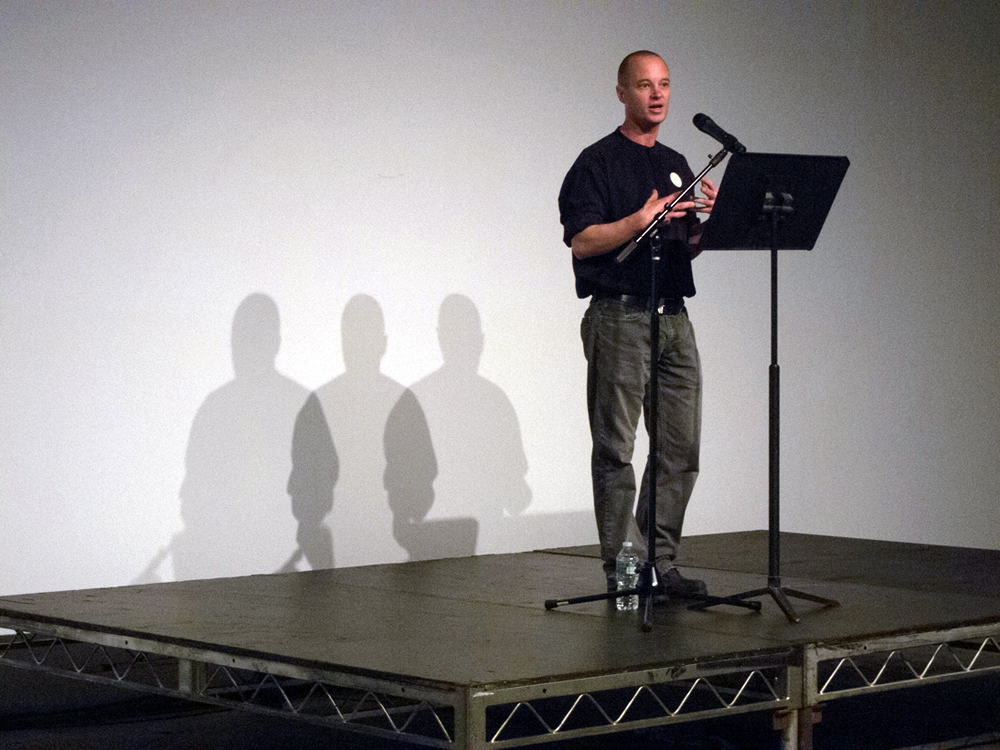
▴ Credit: Bryony McIntyre

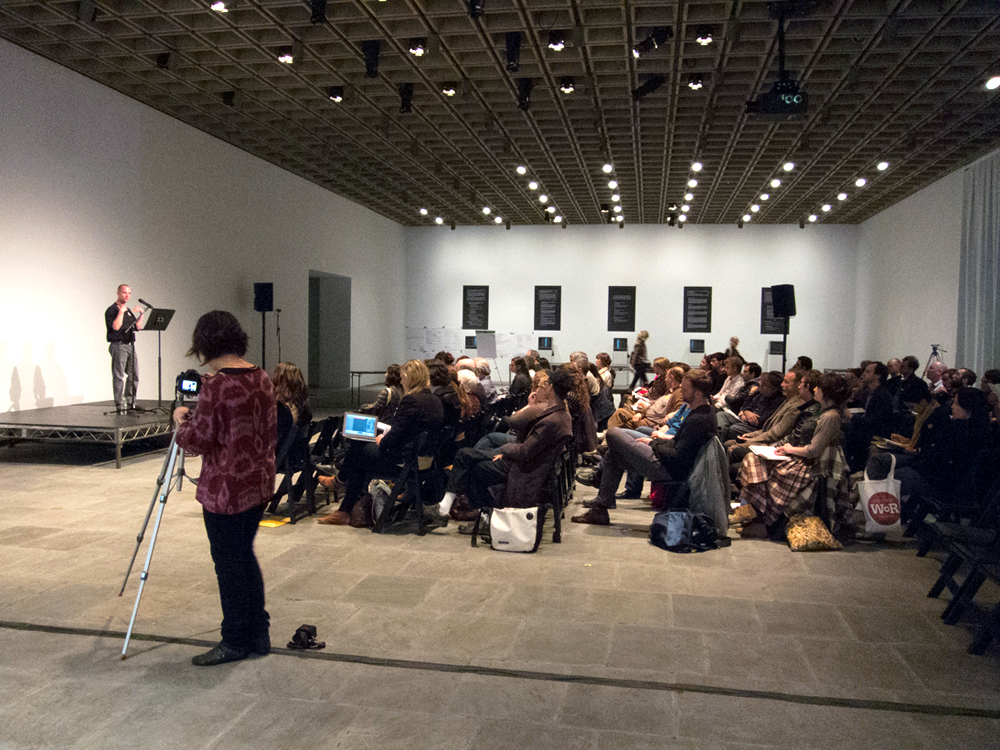
▴ Credit: Bryony McIntyre
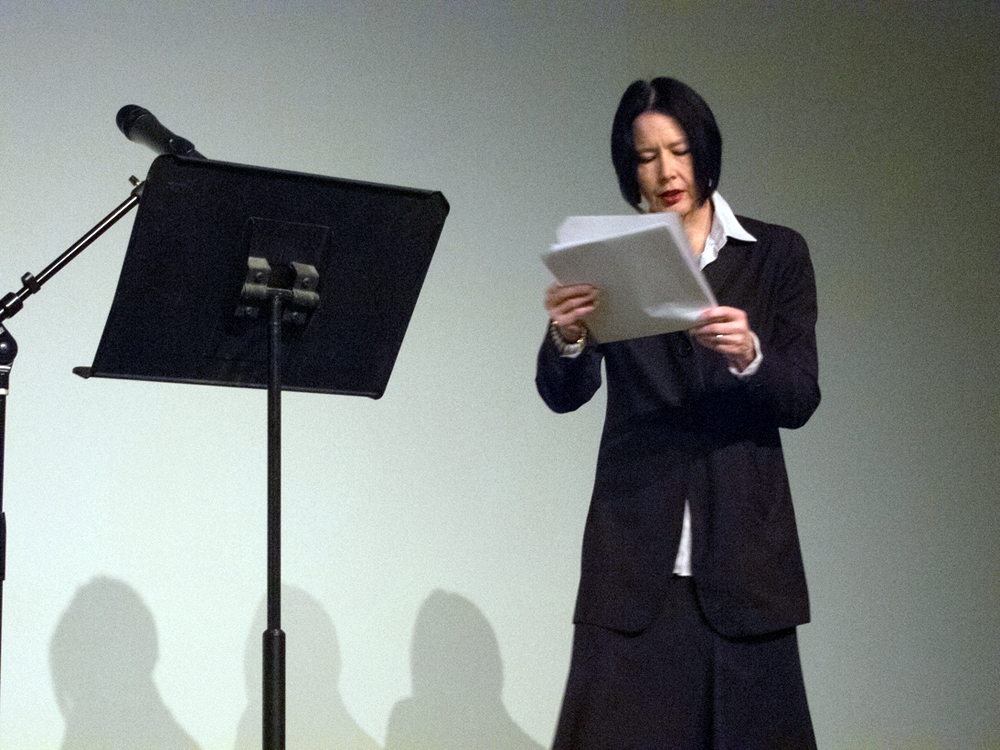
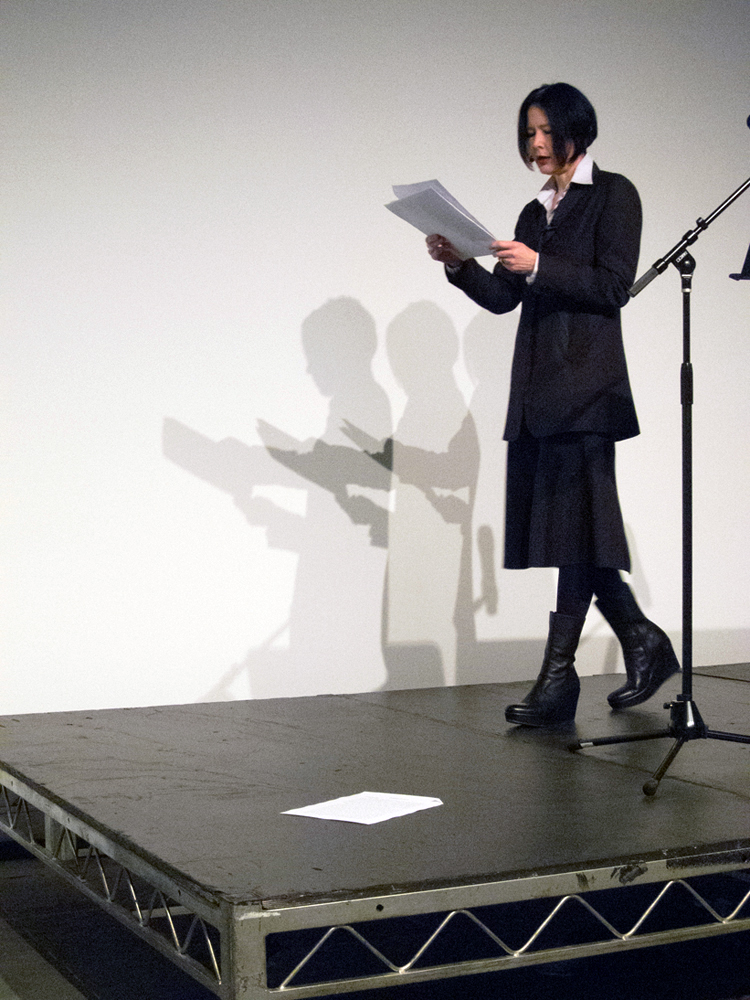
▴ Credit: Bryony McIntyre
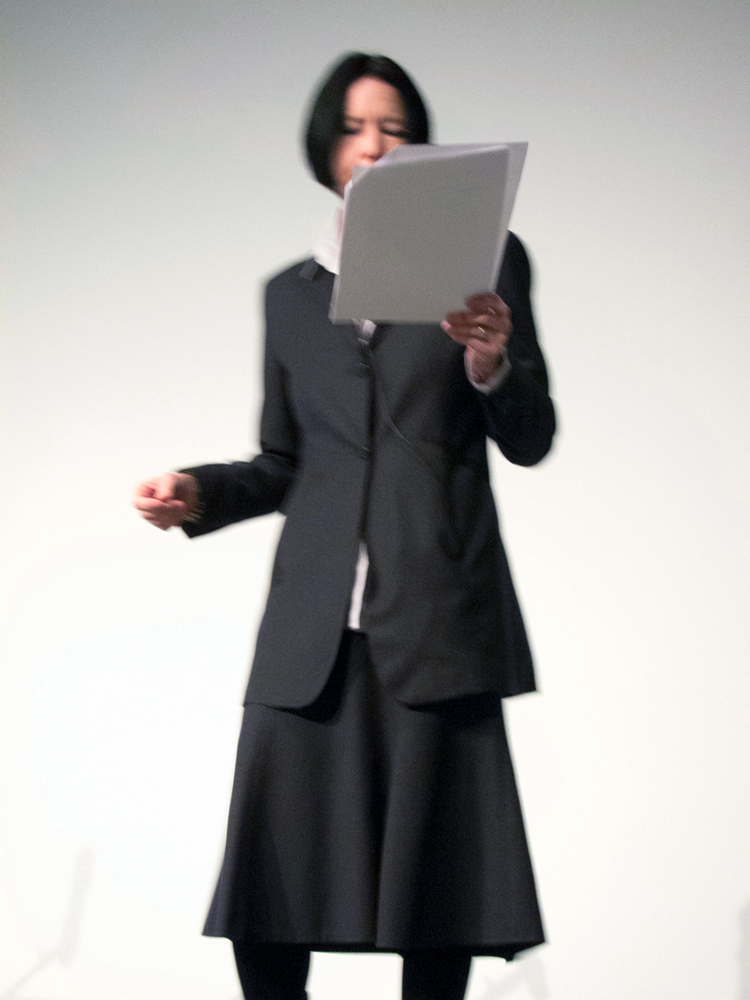
▴ Credit: Bryony McIntyre
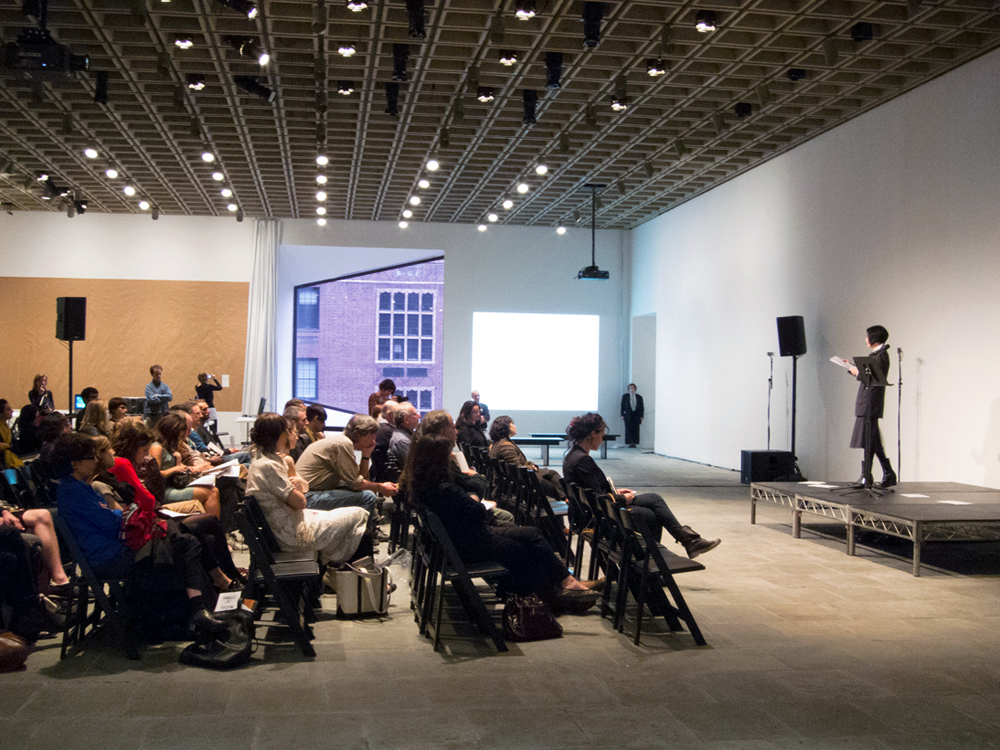
▴ Credit: Bryony McIntyre
Artists

Craig Dworkin
